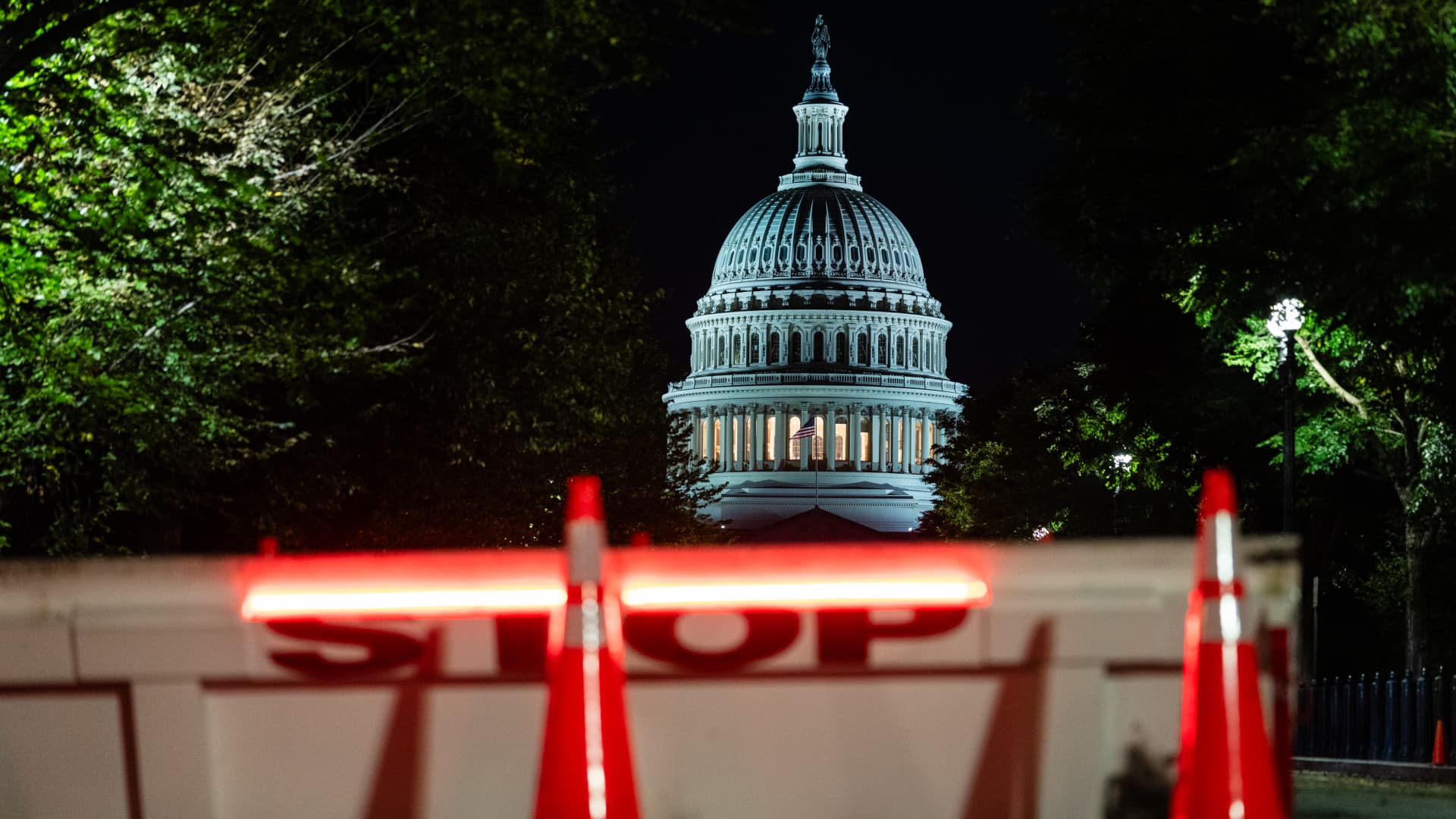Treasury yields fell Wednesday after new data showed a surprise decline in private payrolls, while traders monitored the consequences of the government shutdown after lawmakers failed to reach an agreement on the federal funding bill.
The 10-year Treasury yield traded more than 5 basis points lower at 4.094%. The 30-year bond yield shed more than 3 basis points to 4.698%. One basis point equals 0.01% and yields and prices have an inverse relationship.
Private payrolls declined by 32,000 in September, according to ADP. Economists polled by Dow Jones expected an increase of 45,000. August payrolls were also revised to show a loss of 3,000. Initially, the data showed a 54,000 increase.
ADP’s monthly release took greater importance Wednesday following a U.S. government shutdown that delays the release of the September U.S. jobs report.
The U.S. government shut down after the Republican-controlled Senate failed to reach an agreement on the temporary spending bill on Tuesday. Democrats have been aiming to include an extension of health care tax credits for millions of Americans within the spending bill, which Republicans disagreed on.
President Donald Trump has criticized the Democrats, saying that “I didn’t see them bend even a little bit” in negotiations. He has also threatened permanent layoffs during the shutdown, adding a new risk to this stoppage for this economy.
“The history of shutdowns really has had so little impact on the real economy because essentially, by the end of the shutdowns, everything goes back to the way it was,” William Lee, chief economist at the Milken Institute, said Wednesday in a “Worldwide Exchange” interview.
“But this time there may be some big changes because both sides are being very strategic about it. The Republicans are saying, ‘this is a good time for us to implement the kind of changes Elon Musk put in place with DOGE.’ … The Democrats are really bearing down and saying, ‘this is our turn to be strategic and get back the legislation we want to put in place,'” he added.
If the shutdown drags on, it could raise fears about the credit quality of U.S. debt, which could hit Treasury prices and raise yields. Moody’s downgraded the U.S. credit rating in May and noted that the “rating also could be downgraded if policy effectiveness or the strength of institutions were to erode to such a degree that materially weakens the sovereign’s credit profile.” JPMorgan traders told clients this week it was a possible “tail risk” of the shutdown.

